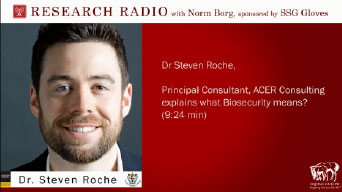Biosecurity Basics
Biosecurity is more than a common buzz word but there are those that still balk; thinking it is a high tech or expensive concept. Fact of the matter is, there are plenty of simple steps to reduce the chances of your horse getting sick. Equine Guelph has the perfect health care tool to help you find out your farm’s biosecurity score. With a simple 10 minute survey, the Biosecurity Risk Calculator, sponsored by Vétoquinol Canada Inc., provides a starting point to protecting your horse’s health with easy to implement practices for infectious disease control.
It is no coincidence, Equine Guelph has named 2016 the Year of Biosecurity. The focus has increased steadily over the years and the horse industry has its unique challenges with the average horse frequently traveling off property or encountering horses that have been off the farm.
 In a recent podcast interview, Dr. Steve Roche, principle consultant for ACER consulting, talks about preventing disease from coming onto the farm such as viruses and bacteria. The concepts are simple: separating new or returning horses so they are not out with lower risk horses who travel far less, not touching mucus areas of horses with dirty hands or after touching unfamiliar horses and not sharing equipment. Roche was involved in rolling out and following up with the racing industry in Equine Guelph’s “Spread the Word not the Germs” campaign including: posters, white-board videos and other resources distributed to Ontario race tracks. These Biosecurity resources and more are available on Equine Guelph’s website.
In a recent podcast interview, Dr. Steve Roche, principle consultant for ACER consulting, talks about preventing disease from coming onto the farm such as viruses and bacteria. The concepts are simple: separating new or returning horses so they are not out with lower risk horses who travel far less, not touching mucus areas of horses with dirty hands or after touching unfamiliar horses and not sharing equipment. Roche was involved in rolling out and following up with the racing industry in Equine Guelph’s “Spread the Word not the Germs” campaign including: posters, white-board videos and other resources distributed to Ontario race tracks. These Biosecurity resources and more are available on Equine Guelph’s website.
So, in addition to staying on the pulse for disease alerts and planning vaccinations with your veterinarian, check out the Biosecurity Risk Calculator covering nine categories:
1. Your Farm
2. Horse Movement
3. General Protocol
4. Feed Storage
5. Isolation/Quarantine
6. Cleaning/Disinfection
7. Vaccination
8. Deworming
9. Veterinary Care
Find out if there are extra steps your farm could be implementing to help reduce the risk of infectious disease.

